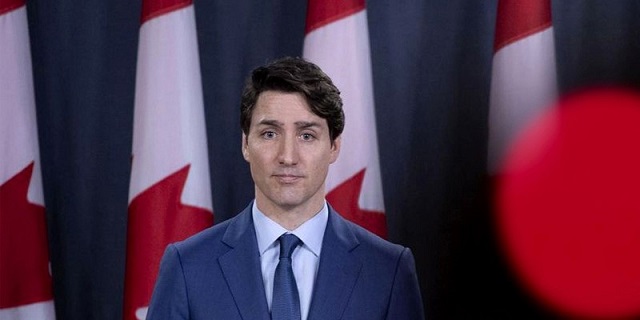Economy
Trudeau shatters myth of ‘ideal’ carbon tax

From the Fraser Institute
For several decades now, some economists have supported the idea of carbon taxes. An ideal carbon tax, they argue, is uniform across the economy, fuel/technology neutral, in lieu of—not atop of—additional regulations and subsidies, and revenue neutral.
Others, including myself, have argued that such an ideal carbon tax can never be implemented or maintained because of something called “public choice theory,” which holds that policymakers are not neutral, objective, dispassionate problem-solvers but rather self-interested agents who will enact policies primarily to advance their political interests, which guarantees corruption of “ideal” policies. If one understands public choice theory, one must understand that the ideal carbon tax is a myth, which would not survive its first contact with real-world political actors.
For example, in a 2017 study, I showed that none of Canada’s provincial carbon taxes were implemented in anything close to the ideal form (with the exception of British Columbia’s carbon tax, for its first few years). Still, many economists embraced the federal carbon tax, sure in the possibility of realizing the ideal form.
But last month, Prime Minister Trudeau elegantly ended the debate about the potential for ideal carbon taxes to survive in the political wilds and announced his government would postpone an expansion of his signature carbon tax. As you’ve probably heard, the government will suspend the tax on heating fuel used primarily in Atlantic Canada and provide additional subsidies to Atlantic Canadians by doubling the rural carbon tax rebate to help them switch from heating with oil to electric heat pumps.
This is a three-way violation of the “ideal carbon tax” concept beloved by some economists. Trudeau has made the federal carbon tax non-uniform, ended technological neutrality and—by exempting a swath of emissions—made it less efficient and effective. Again, in a political world, political self-interest will always lead to the corruption of ideal regulatory or tax regimens. Even the University of Calgary’s Trevor Tombe, a diehard fan of the carbon tax, now suggests it might be the beginning of the end for the entire idea of carbon taxes. The carbon tax is dead, he writes. Or at least, its days may be numbered.
Of course, Atlantic Canadians get a sweet deal—a three-year tax moratorium and more money in their pockets for heating equipment changes. On the other hand, the Prairie provinces once again receive the back of the prime minister’s hand, cementing (not that it needs much cementing) the perception that he dislikes the Prairies and seeks to punish them for having the temerity to resist his efforts to loot them of natural resource revenues and provincial sovereignty. Not only will Prairie folk not get a break on carbon taxes on their heating fuel (primarily natural gas) but they also won’t get increased rebate cheques to help them transition to lower-emission forms of heating and cooling.
Prime Minister Trudeau’s move to pervert the federal carbon tax even farther from the economically ideal model proves yet again that such ideal forms are always inherently doomed to corruption by the political process. The harmful impacts of a carbon tax, unmitigated by those various “ideal” caveats, is landing on the pocketbooks of the public, and one suspects the prime minister knows it. He should consider stealing an issue from his leading political rival and take an axe to the tax he created, rather than leave that chore to his successor.
Author:
Business
Canada may escape the worst as Trump declares America’s economic independence with Liberation Day tariffs

 MxM News
MxM News
Quick Hit:
On Wednesday, President Trump declared a national emergency to implement a sweeping 10% baseline tariff on all imported goods, calling it a “Declaration of Economic Independence.” Trump said the tariffs would revitalize the domestic economy, declaring that, “April 2, 2025, will forever be remembered as the day American industry was reborn.”
Key Details:
-
The baseline 10% tariff will take effect Saturday, while targeted “reciprocal” tariffs—20% on the EU, 24% on Japan, and 17% on Israel—begin April 9th. Trump also imposed 25% tariffs on most Canadian and Mexican goods, as well as on all foreign-made cars and auto parts, effective early Thursday.
-
Trump justified the policy by citing foreign trade restrictions and long-standing deficits. He pointed to policies in Australia, the EU, Japan, and South Korea as examples of protectionist barriers that unfairly harm American workers and industries.
-
The White House estimates the 10% tariff could generate $200 billion in revenue over the next decade. Officials say the added funds would help reduce the federal deficit while giving the U.S. stronger leverage in negotiations with countries running large trade surpluses.
Diving Deeper:
President Trump on Wednesday unveiled a broad new tariff policy affecting every imported product into the United States, marking what he described as the beginning of a new economic era. Declaring a national emergency from the White House Rose Garden, the president announced a new 10% baseline tariff on all imports, alongside steeper country-specific tariffs targeting longstanding trade imbalances.
“This is our Declaration of Economic Independence,” Trump said. “Factories will come roaring back into our country — and you see it happening already.”
The tariffs, which take effect Saturday, represent a substantial increase from the pre-Trump average U.S. tariff rate and are part of what the administration is calling “Liberation Day” for American industry. Reciprocal tariffs kick in April 9th, with the administration detailing specific rates—20% for the European Union, 24% for Japan, and 17% for Israel—based on calculations tied to bilateral trade deficits.
“From 1789 to 1913, we were a tariff-backed nation,” Trump said. “The United States was proportionately the wealthiest it has ever been.” He criticized the establishment of the income tax in 1913 and blamed the 1929 economic collapse on a departure from tariff-based policies.
To underscore the move’s long-anticipated nature, Trump noted he had been warning about unfair trade for decades. “If you look at my old speeches, where I was young and very handsome… I’d be talking about how we were being ripped off by these countries,” he quipped.
The president also used the moment to renew his push for broader economic reforms, urging Congress to eliminate federal taxes on tips, overtime pay, and Social Security benefits. He also proposed allowing Americans to write off interest on domestic auto loans.
Critics of the plan warned it could raise prices for consumers, noting inflation has already risen 22% under the Biden administration. However, Trump pointed to low inflation during his first term—when he imposed more targeted tariffs—as proof his strategy can work without sparking runaway costs.
White House officials reportedly described the new baseline rate as a guardrail against countries attempting to game the system. One official explained the methodology behind the reciprocal tariffs: “The trade deficit that we have with any given country is the sum of all trade practices, the sum of all cheating,” adding that the tariffs are “half of what they could be” because “the president is lenient and he wants to be kind to the world.”
In addition to Wednesday’s sweeping changes, Trump’s administration recently imposed a 25% tariff on Chinese goods tied to fentanyl smuggling and another 25% on steel and aluminum imports—revoking previous carve-outs for countries like Brazil and South Korea. Future tariffs on semiconductors, pharmaceuticals, and raw materials such as copper and lumber are reportedly under consideration.
Trump closed his remarks with a message to foreign leaders: “To all of the foreign presidents, prime ministers, kings, queens, ambassadors… I say, ‘Terminate your own tariffs, drop your barriers.’” He declared April 2nd “the day America’s destiny was reclaimed” and promised, “This will indeed be the golden age of America.”
2025 Federal Election
Three cheers for Poilievre’s alcohol tax cut

By Franco Terrazzano
The Canadian Taxpayers Federation applauds Conservative Party Leader Pierre Poilievre’s commitment to end and reverse the alcohol escalator tax.
“Poilievre just promised major alcohol tax cuts and taxpayers will cheers to that,” said Franco Terrazzano, CTF Federal Director. “Poilievre’s tax cut will save Canadians money every time they have a cold one with a buddy or enjoy a glass of Pinot with their better half and it will give Canadians brewers, distillers and wineries a fighting chance against tariffs.”
Today, federal alcohol taxes increased by two per cent, costing taxpayers about $40 million this year, according to Beer Canada.
Poilievre announced a Conservative government “will axe the escalator tax on wine, beer and spirits back to 2017 levels, ending the automatic annual tax increases.”
The alcohol escalator tax has automatically increased excise taxes on beer, wine and spirits every year, without a vote in Parliament, since 2017. The alcohol escalator tax has cost taxpayers more than $900 million since being imposed, according to Beer Canada.
Taxes from multiple levels of government account for about half of the price of alcohol.
Meanwhile, tariffs are hitting the industry hard. Brewers have described the tariffs as “Armageddon for craft brewing.”
“Automatic tax hikes are undemocratic, uncompetitive and unaffordable and they need to stop,” Terrazzano said. “If politicians think Canadians aren’t paying enough tax, they should at least have the spine to vote on the tax increase.
“Poilievre is right to end the escalator tax and all party leaders should commit to making life more affordable for Canadian consumers and businesses by ending the undemocratic alcohol tax hikes.”
-

 2025 Federal Election2 days ago
2025 Federal Election2 days agoPM Carney’s Candidate Paul Chiang Steps Down After RCMP Confirms Probe Into “Bounty” Comments
-

 2025 Federal Election2 days ago
2025 Federal Election2 days agoLiberal MP Paul Chiang Resigns Without Naming the Real Threat—The CCP
-

 2025 Federal Election2 days ago
2025 Federal Election2 days agoFight against carbon taxes not over yet
-

 2025 Federal Election2 days ago
2025 Federal Election2 days agoMark Carney refuses to clarify 2022 remarks accusing the Freedom Convoy of ‘sedition’
-

 Energy2 days ago
Energy2 days agoWhy are Western Canadian oil prices so strong?
-

 2025 Federal Election13 hours ago
2025 Federal Election13 hours agoWEF video shows Mark Carney pushing financial ‘revolution’ based on ‘net zero’ goals
-

 Crime1 day ago
Crime1 day agoFirst Good Battlefield News From Trump’s Global War on Fentanyl
-

 Automotive2 days ago
Automotive2 days agoElectric cars just another poor climate policy










